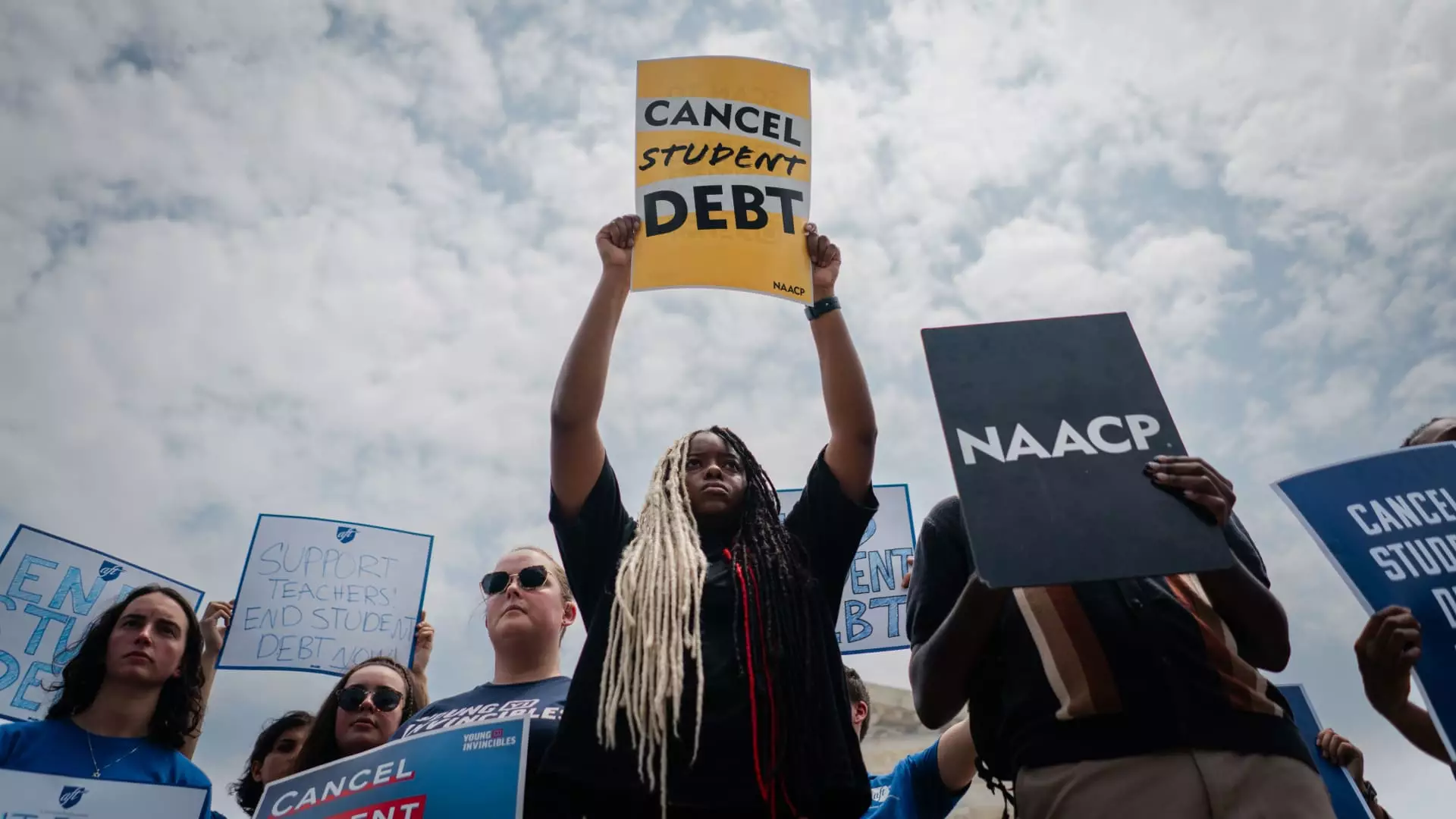The topic of student loan forgiveness has sparked heated debates and varying opinions among individuals, politicians, and experts. The question of whether to cancel student loan debt raises concerns about fairness, personal responsibility, and economic implications. Arkansas Attorney General Tim Griffin, who struggled for 30 years to pay off his $100,000 student loan balance, has expressed his reservations about widespread loan forgiveness. He believes that erasing student debt could lead to existing resources being used, which ultimately comes from taxpayers. Griffin has even filed a lawsuit against President Joe Biden’s loan forgiveness plans, arguing that it is not fair for taxpayers to cover the personal debts of others.
To understand the current attitude towards debt, it is essential to look back in history. Professor Kate Padgett Walsh, an expert in the ethics of borrowing, explains that indebtedness has always been a fundamental aspect of human relationships. In societies, individuals are indebted to their families, friends, and communities for various forms of support and care. Repaying these debts is a way to build connections and maintain social bonds. However, Walsh points out that the emphasis on repaying financial debts today is largely influenced by profit-driven entities such as lenders and businesses. They promote the idea of personal responsibility and encourage individuals to take on large amounts of debt, leading to a moral obligation to repay it.
Devin Singh, an associate professor of religion, highlights the partisan nature of the student loan forgiveness debate. Democrats, who tend to have higher rates of college education, are more likely to support loan forgiveness, as it directly benefits them. On the other hand, Republicans, who may not have as much personal experience with student debt, are more divided on the issue. Singh also emphasizes the differing views on the role of education between the two parties, with Democrats seeing it as a public good and Republicans viewing it more as a private commodity.
Charlie Eaton, an associate professor of sociology, points out common misconceptions surrounding student loan forgiveness. Many people struggle to empathize with student loan borrowers if they have never been in that position themselves. There is also a lack of understanding about the financial challenges faced by borrowers, as interest rates can cause debts to grow even when payments are being made. Eaton stresses the generational gap in attitudes towards student debt, with older Americans who did not need to borrow for college being less empathetic towards the struggles of current borrowers.
The issue of student loan forgiveness is a complex and multifaceted one. It involves considerations of fairness, personal responsibility, economic impact, and historical perspectives on debt. As the debate continues, it is crucial to engage in informed discussions that take into account the diverse experiences and viewpoints surrounding this contentious issue. Through open dialogue and a deeper understanding of the complexities involved, we can work towards finding solutions that address the challenges faced by student loan borrowers in a way that is fair and equitable for all parties involved.

Leave a Reply